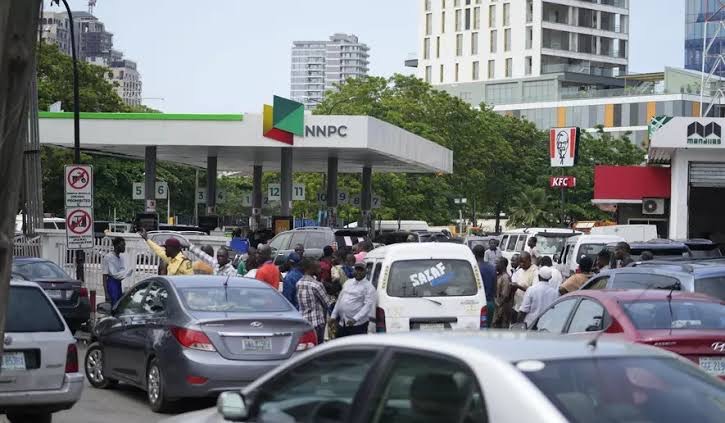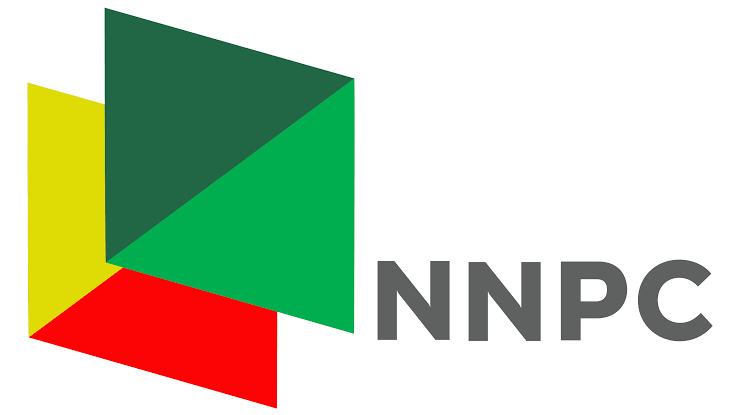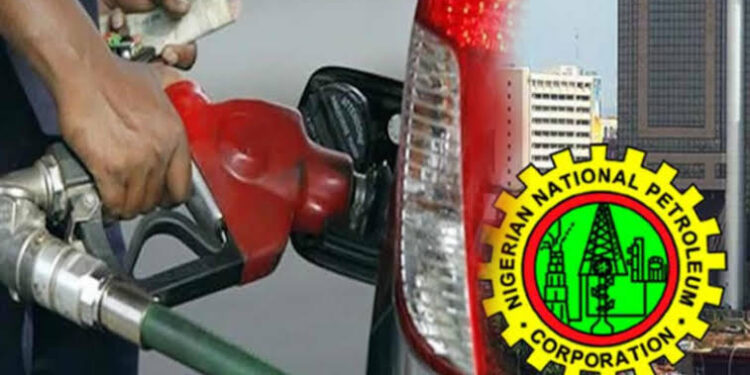Filling stations operated by the Nigerian National Petroleum Corporation Limited (NNPCL) have recently raised the pump price of fuel, marking a dramatic change in the market. In Abuja, the capital city, fuel that was previously sold for N897 per litre has now jumped to N1,030 per litre.
Journalists visiting an NNPCL outlet in the Maitama area witnessed long lines of motorists waiting to purchase fuel, a scene accompanied by numerous complaints regarding the sudden price increase.
At another NNPCL station located in Gudu, also in Abuja, a similar situation unfolded as motorists continued to queue, eagerly awaiting attendants to begin the sale of fuel.

When a reporter inquired about the availability of fuel at the Gudu station, an attendant clarified that although they had fuel in stock, the management was waiting for the meters to be adjusted to display the new price. When asked how much the fuel would cost, the attendant confirmed, “N1,030 per litre.”
In Lagos, the situation mirrored that of Abuja, with fuel prices experiencing a huge increase. Fuel that was previously priced at N885 per litre is now being sold for N998 per litre, accompanied by long queues of customers at various filling stations.
This price hike comes just 24 hours after it was reported that the possibility of an increase in fuel prices was due to NNPCL’s decision to exit its role as a middleman in the purchasing agreement with the Dangote Refinery.
This development indicates that the national oil company will no longer absorb the price difference between the refinery’s selling price and the retail price, a subsidy that previously amounted to N133 per litre.

The NNPCL’s decision represents a pivotal shift towards a fully deregulated oil market in Nigeria. Under this new arrangement, fuel marketers will now negotiate petrol prices directly with the Dangote Refinery through a “willing buyer, willing seller” framework, similar to the operational practices established for other deregulated products such as diesel and kerosene.
In September, Devakumar Edwin, the Vice President at Dangote Industries, announced that the Dangote Refinery, which has the capacity to process 650,000 barrels per day, had begun its petrol processing operations.
Initially, the NNPCL was the sole off-taker of refined petrol, but recent policy adjustments now enable independent marketers to engage directly with Dangote for their fuel supplies.
“We can no longer continue to bear that burden,” an NNPCL official stated in an interview with Premium Times, emphasizing the financial challenges posed by the subsidy system.
This shift signifies a fundamental change in the dynamics of Nigeria’s oil market, marking a move towards greater market liberalization and reducing the financial pressures on the NNPCL.
As this transition unfolds, the implications for consumers and the broader economy will continue to develop, particularly regarding fuel accessibility and pricing stability.

































